DAY 1:
Thursday, 7 April, 2016
It really hit me when I found myself dragging my luggage, papers and passport in hand, backpack on my back, and waving goodbye to my parents then disappearing into the airport without them. I am travelling solo (for the first time) to the United States of America (for the first time) to attend a journalism conference I was invited to (for the first time as well) and receive an award in my name (you guessed it, for the first time). Too much information to handle at once, right? Now allow me to tell you the story from the beginning.
This is how it all started.
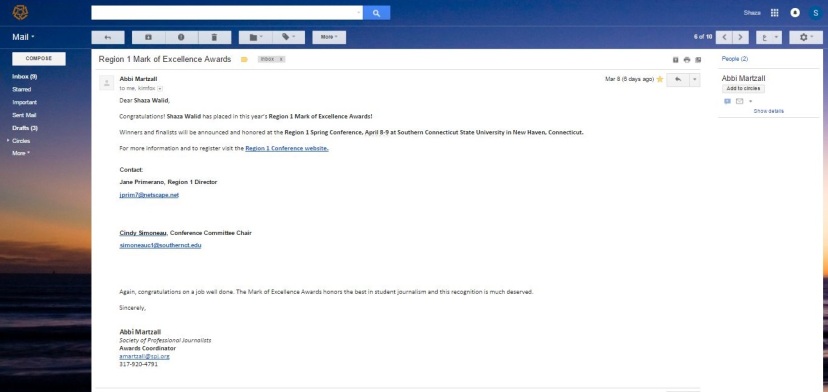
Oh my! My audio documentary has received a second place on the category of Radio In-Depth Reporting for the Mark of Excellence Awards and I am invited to attend a journalism conference at Connecticut to receive my award, organized by the Society of Professional Journalists (SPJ). This is something I would have never dreamed about. EVER. Even in my wildest dreams. But it is true and I need to do something about it.
So what about this documentary, you might ask? It was the final project for an Audio Production course at university, just one of the toughest and roughest courses I have ever taken. It used to consume all my energy, time, and ideas. I used to skip other classes and submit late assignments just to finish work for this one. Nevertheless, I got introduced to the fascinating world of radio and how captivating and powerful it is. I found a part of me behind the mic. It allowed me to talk and express myself minus the awkward social interactions and pressures, what could be better?

I produced my audio documentary as an attempt to shed light on the sentiments of Egyptian youth after the revolution. The youth talk about their fears, aspirations, and doubts about the current state of Egypt in addition to their reminisces about the revolution. You know what? I’ll let my documentary speak for itself.
Now back to the award, my dearest professor Kim Fox was the one who encouraged me to apply and saw my work capable of competing at international competitions. When I first saw the email, I was dumbfounded. I did not know what to do. I even left it lying in my inbox for a couple of days. I emailed Professor Fox and she sent out an announcement to the entire department informing them about my award and asking them about possible funding opportunities. That was when my journey starting unfolding.
This email was sent me less than a month before the conference date. During this very short and hectic period, I was supposed to finish my US visa requirements, apply for funding, actually acquire funding, make flight and hotel reservations, finish college work before leaving, and inform my professors about my trip and adjust my deadlines accordingly.

All these aforementioned tasks took out much effort, time, organization, and thought on my side. I wanted this opportunity so bad. It is a once-in-a-lifetime thing that cannot be missed. I am not gonna bore you with the details of how I got through all this at such a short notice, but to sum it up, I thankfully managed to get them done on time (and by on time I mean 2 days before my departure date).
I would like to take this opportunity to thank the School of Global Affairs and Public Policy (GAPP) at AUC and the Office of Undergraduate Research Fund for agreeing to graciously fund my trip.
And here I am, at the airport alone for the very first time, at 2 am sitting at the airport lounge, waiting for my departure. I was having mixed feelings about this. I was excited yet afraid. I kept thinking about all the possible negative scenarios that could happen to me while alone abroad. But then I reminded myself that mishaps are inevitable. That every trip has both its glorious and upsetting moments. And this was part of the whole experience. I also reminded myself that I am strong and savvy enough to deal with any problem that comes my way insha’Allah (and Oh I will face plenty!).

My trip was supposedly going to be as follows: Cairo to Frankfurt to Newark to Connecticut. The trip to Frankfurt was pretty smooth. Travelling on Lufthansa was very comfortable and seamless. Frankfurt International Airport was quite huge. I had to take trains inside the airport to get to my terminal. As soon as I arrived, I asked about whether I’ll take my luggage and check it in again for my next trip. The attendant told me that since mine was a connecting flight, it will automatically be on the next trip to Newark. Good, less bags for me to carry around, I thought.
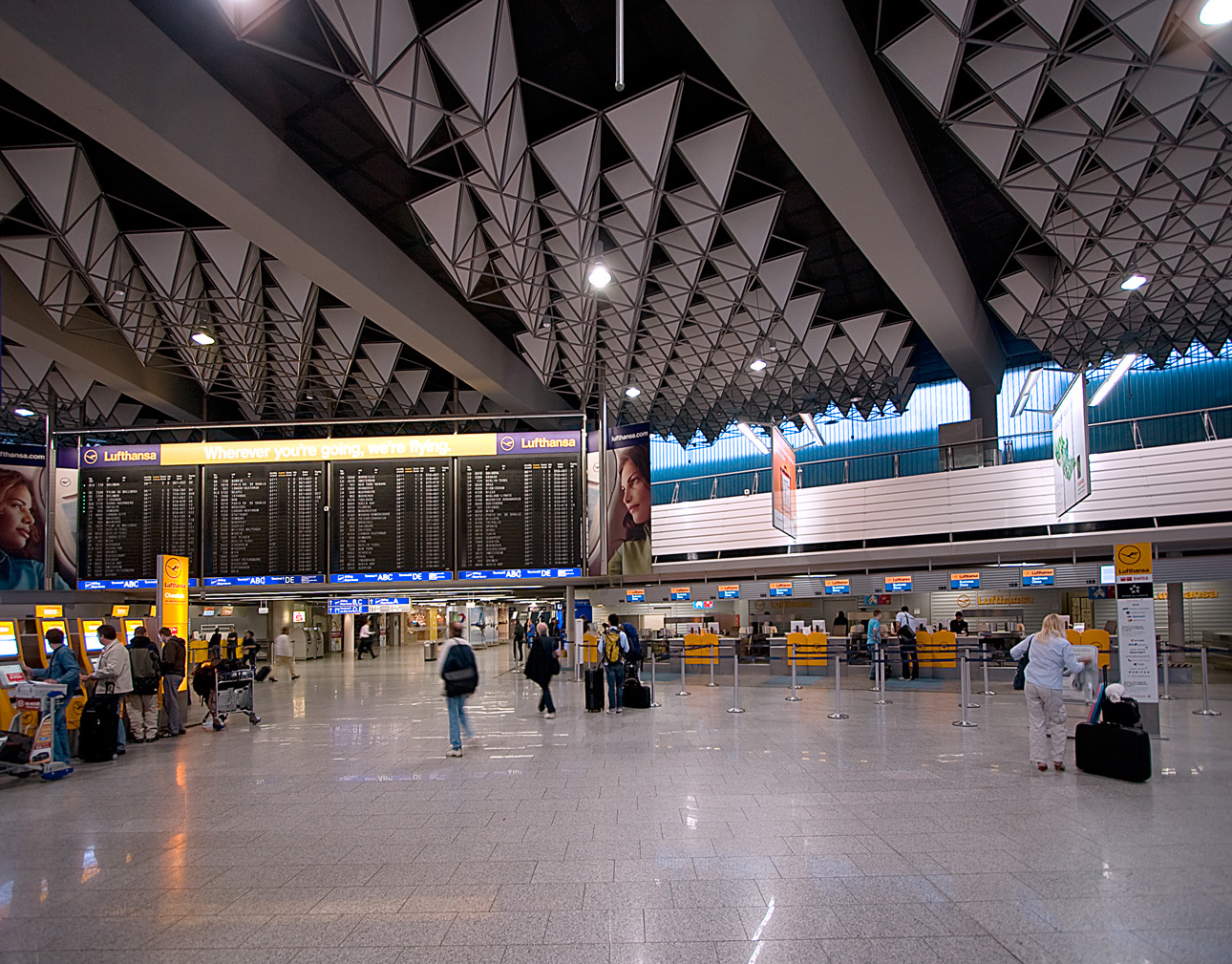
There was still about two hours until the next flight. So I had some coffee and a sandwich and sat there observing what was around me. It is always really interesting to watch people in airports, all gathered in one place for various different purposes. Some dread their trips because they are going to a place they’d rather not be, while others have been waiting so long for theirs. And don’t commit the mistake of thinking that people who travel alone are lonely, for you could be around people who make you feel the loneliest.
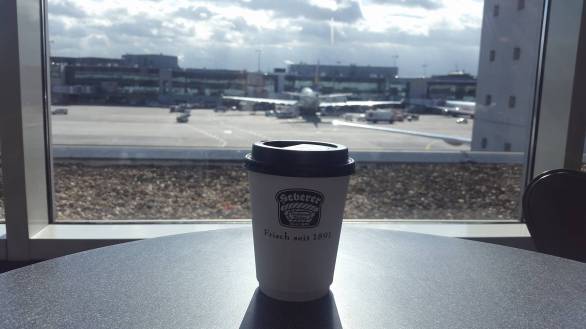
Honestly, I was afraid I would be stopped or questioned at the airport because of my veil. But thankfully, none of that happened, only some routine questions about the reason for my trip and accommodation and a casual check, nothing more.
Now it was time for my next flight to Newark, which would yet take eight hours! I bought myself one of those comfy travel pillows so I can sleep whenever I want to. This time, I was flying on United Airlines, which was amazing. Chairs were very comfortable and spacious, even though I booked an Economy class. The plane was not very crowded so I had an empty chair beside me to place my bags.

The food was also great. And the flight attendants never left us to be hungry, giving us food and knickknacks every two hours or so. There were many Indians on the plane and it was interesting to see the flight attendants handing them vegetable dishes and fruits as snacks. How considerate of them!
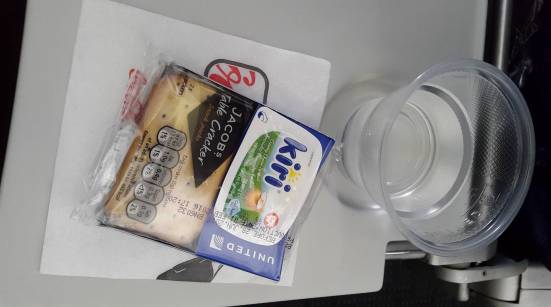


Apparently, I am not the kind of person who can sleep soundly on planes. I actually sleep better in a car or a bus, a moving vehicle. Anyway, the flight was incredibly long and I was starting to get tired of flying. I had some Anthropology readings to do, in addition to The Kite Runner by Khaled Hosseini, which was such an exquisite and eloquently written book. One of the few books that touched me to the core.
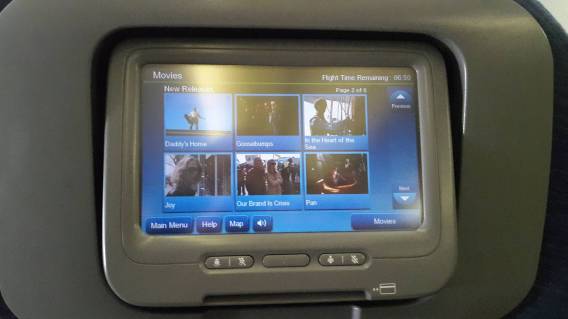

Near the end of the flight, I started to get really dizzy. Because of traffic at the airport, landing took an extra hour. I usually get nauseous during landing so this delay was not to my best interest. I could really feel my stomach turning. I was afraid to throw up because I was alone. If I got tired, I would not find my beloved ones to my side. This thought was terrifying. However, I tried to distract myself by reading in my book, which to my fortunate luck, was at a part where Amir was vividly describing how he suffers from motion sickness and he knows for sure when he is going to vomit. What a timing! Moreover, I started hearing one or two people throwing up in bags because of the terrible landing. A baby to a Jewish couple also started crying nonstop the whole hour! Again, I exerted a tremendous degree of self control to prevent myself from vomiting, but I still kept the bag at hand in case I could not help it anymore. After an hour of dizziness and stomach-churning, I finally landed at the United States of America (particularly Newark Liberty International Airport).

Stepping foot at the United States of America felt enthralling. I was at the country that is considered one of, if not the, most powerful countries of the world. I was at the country which influences several aspects of our daily lives, restaurant chains, clothes, music, movies, series, politics, and more. I was at the country which my school and university, and thus my education, is affiliated with. It was a glorious moment, to be honest.
On a side note, it felt quite weird that I started my trip at 4 am from Cairo, a four-hour flight to Frankfurt, two-hour transit, then an eight-hour trip to Newark, and it was STILL noon. The day felt soooo long.
We stood in long lines for the passport check. No cell phone use was allowed, as you can see in the previous picture. When it was my turn, the airport personnel asked about many details that I was starting to get nervous. He asked about the reason behind my trip, where I was staying, how long I will be staying, how did I fund my trip, my parents’ occupation, and my invitation to the conference. He also asked me to take off my eyeglasses to match my visa picture. I was getting anxious and started to doubt if something was wrong with my papers. But then he gave me a warm smile and said, “Welcome to our country.” That was amazing.
I received my luggage and now it was time to take a 2-hour train to New Haven, Connecticut. Luckily, the Amtrak station was inside the airport and it was already paid as part of the flight ticket by the GAPP school. All I needed to do was print my ticket and catch my train. Boy, I was tired now. However, apparently Newark loved me so much it did not want me to take off until the evening…
Wanna know what delayed me so much? Wait for my next post to find out.
-All images are hyperlinked to their original sources, unless otherwise stated.



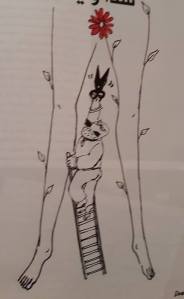
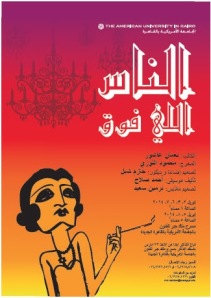

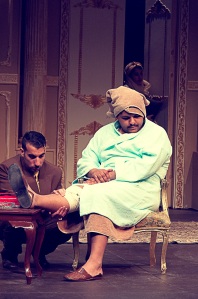
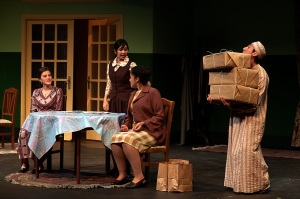
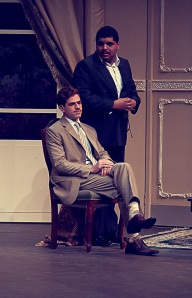
You must be logged in to post a comment.